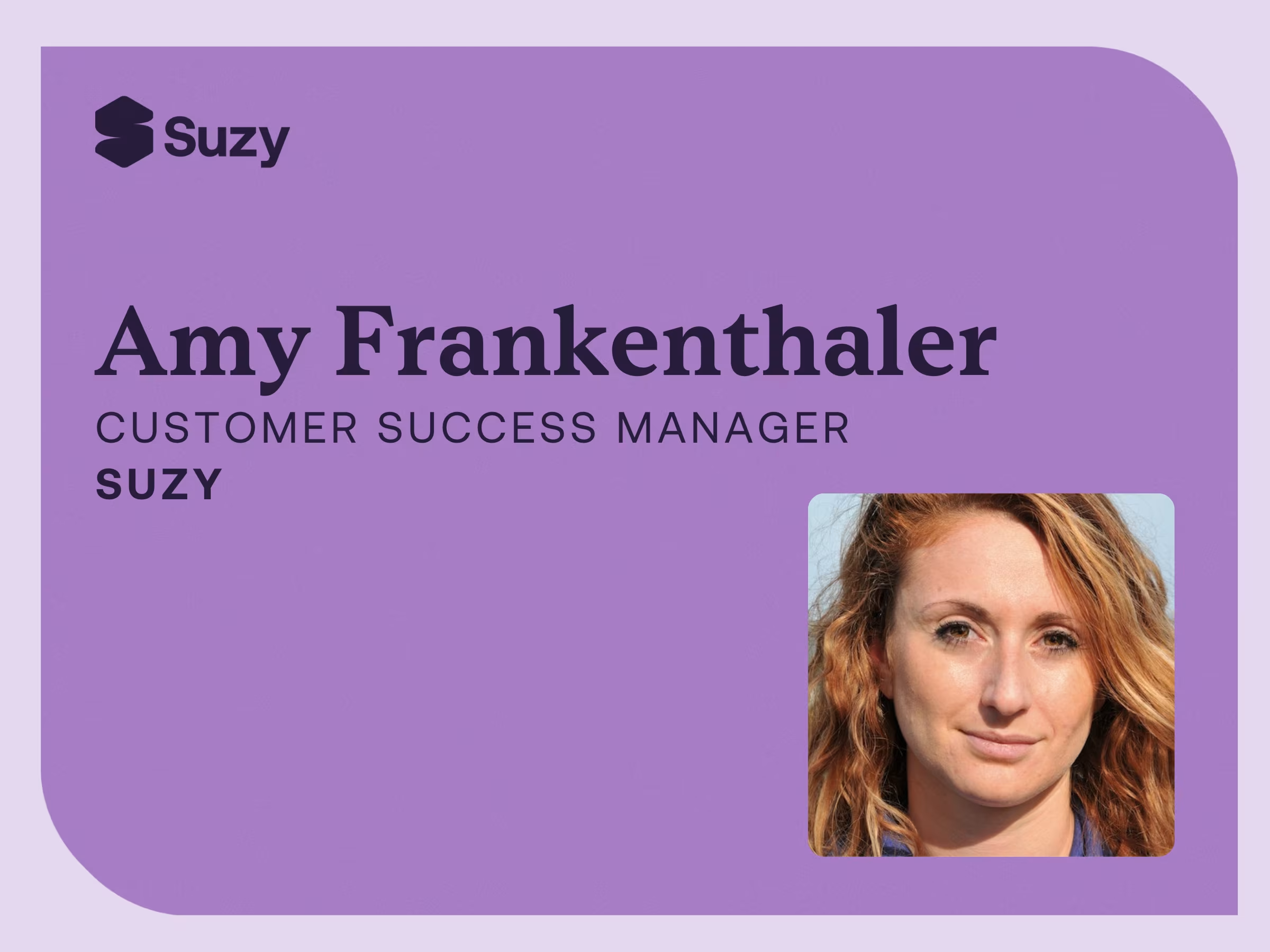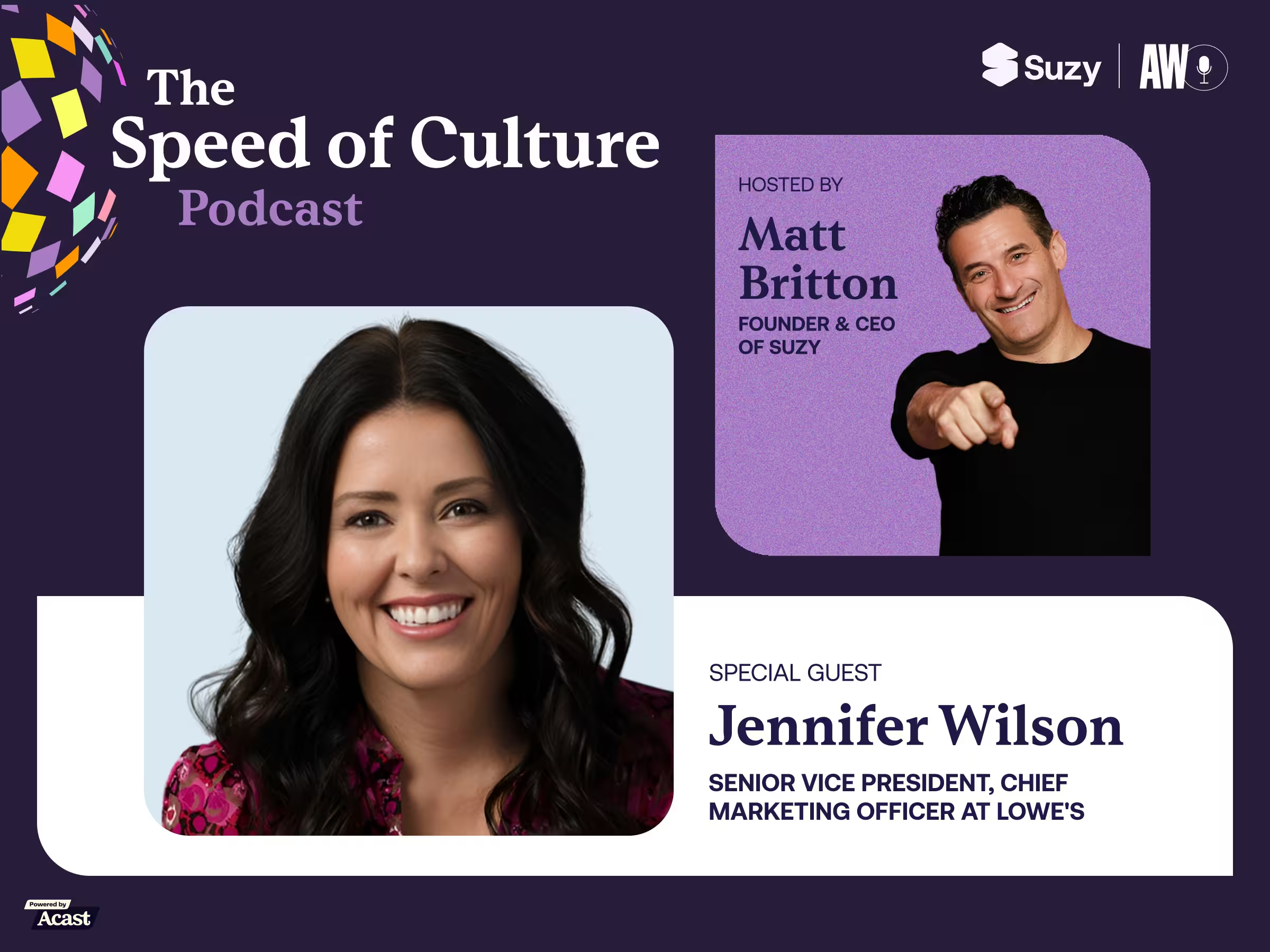By: Noah Lartigue, Director, Enterprise Sales at, Suzy
Flex or confession?
I have 14 credit cards. It's one of my more controversial "fun facts".
Each card marks a different era of my financial life: my first student card with a $500 limit, the heavy metal American Express Platinum that made me feel like I'd "made it", and the co-branded airline cards I swore I’d cancel after earning the welcome bonus (I didn’t).
One night, I spread them all out on my desk. What I saw wasn’t a pile of plastic. It was a timeline of how brands built relationships through rewards – and how those relationships are changing.
Because today, credit cards aren’t just about spending. They’re about experiences.
From plastic to platforms
The credit card has always reflected changing consumer needs. When American Express introduced its first charge card in 1958, it offered increased flexibility for affluent travelers. The 1980s brought airline miles and the birth of the loyalty economy. The 2000s introduced online payments. Now, in the 2020s, the credit card has evolved into an all-in-one identity, access, and experience platform.
American Express' Platinum Card refresh didn’t just add perks – it reimagined membership. Lounge access, curated experiences, and lifestyle subscriptions transformed the card into a social status marker.
Chase took a similar path. Its “Most Rewarding Cards” campaign doubled down on experiences that fit real life — from travel credits to dining rewards to exclusive events.
Meanwhile, Citi’s Strata Elite joined the premium fray by promising a card that adapts to its users’ shifting priorities.
Across the board, the message is clear: the modern credit card isn’t competing on APRs. It’s competing on affinity.
Enter Bilt: The loyalty disruptor
Then there’s Bilt, the loyalty rewards platform rewriting what “rewards” even mean.
By letting users earn points on rent payments (and soon to be mortgages)— the largest monthly expense for most Americans – Bilt turned something previously unrewardable into a loyalty engine. Rent now earns airline miles, fitness perks, and local benefits through its growing neighborhood rewards network.
That move did more than introduce a new perk. It introduced a new mindset.
Credit cards are no longer anchored to global travel and high-end dining. They’re local, social, and hyper-relevant to daily life.
Bilt’s “Neighborhood Benefits” program partners with local coffee shops, fitness studios, and restaurants. It taps into the communities where people actually live, transforming routine spending into relationship building.
It’s the ultimate evolution of loyalty: from global exclusivity to local belonging.
Listening is the new loyalty
One of Bilt’s smartest moves? It’s going beyond just rewarding customers. It’s actually talking to them. Constantly.
Through in-app polls, email surveys, and social feedback loops, Bilt uses insights to shape its next move. Whether it’s testing new reward categories or informing the answers to their Rent Free Game where you can win free rent, the brand’s secret weapon moves beyond simple card design. They’re winning with curiosity.
In other words: Bilt doesn’t guess what its members want. It asks them.
That’s a major lesson for every brand in the loyalty ecosystem. In an age where consumer trust is fragile and expectations evolve daily, continuous listening isn’t optional – it’s existential.
This is exactly where Suzy gives brands an edge.
With Suzy’s consumer insights platform, companies can replicate what Bilt does at scale:
- Test potential rewards or partnerships before launch.
- Gauge how local perks resonate by region or lifestyle.
- Capture consumer voice in real time through Suzy Speaks.
The result? Programs that don’t just earn points, but earn loyalty.
Experience is the new currency
For decades, loyalty was purely transactional. Spend $1, earn 1 point. Redeem for a flight. Rinse, repeat.
That formula worked when consumers saw rewards as bonuses. But in today’s experience economy, rewards have become expectations. Consumers don’t just want value back — they want value that fits who they are and how they live.
Across categories, credit card issuers are reengineering rewards around lifestyle and identity.
That’s why major issuers are leaning into lifestyle benefits:
- Chase Sapphire Reserve is transforming dining partnerships and airport lounges into cultural destinations, turning points into shared experiences.
- Amex Platinum has moved beyond travel to embrace wellness credits, premium streaming, and exclusive events — a nod to the modern consumer’s hybrid lifestyle.
- Citi Strata Elite launched in 2025, introduces adaptive rewards that flex with consumers’ shifting priorities, from fitness and sustainability to entertainment and travel.
These cards aren’t just financial tools; they’re social passports. They build micro-communities around shared passions — travelers, foodies, creators, wellness enthusiasts. Each swipe becomes a touchpoint in a larger lifestyle narrative.
The psychology here is powerful; when rewards connect emotionally, loyalty deepens. People feel seen, not sold to. The reward becomes a reflection of self – not just a transaction.
And this shift doesn’t stop at finance. For brands in retail, CPG, hospitality, and beyond, the competition for loyalty isn’t just against other cards. It’s against the entire lifestyle economy.
Consumers are deciding which brands earn a role in their daily rituals: the coffee they drink, the gym they join, the digital services they subscribe to.
The takeaway? Experience is the new ROI. The brands that integrate emotional and functional value – and evolve those experiences through real-time insights – will win the next era of loyalty.
The Neighborhood Effect: Why local matters
While many of these “premium” cards position points as a way to take you far, consumers are increasingly driven by local identity.
Suzy’s recent thought leadership on financial trends redefining consumer trust highlights how today's consumers are "choosing financial partners that make their lives easier, align with their values, and provide real transparency.” They want to feel rooted in their communities and see their spending make an impact where they live.
Bilt’s Neighborhood Rewards strategy nails this – turning every rent check into a catalyst for connection. You pay rent, earn points, and get perks at your favorite café downstairs or the yoga studio across the street.
It’s financial wellness meets social belonging – and it’s redefining what “value” means in loyalty.
For brands, this shift opens the door to more integrated, community-based programs. Imagine:
- Grocery rewards that fund local food banks.
- Fitness credits redeemable at nearby gyms.
- Retail partnerships that celebrate local creators.
And with Suzy, brands can test which of these ideas resonate before investing heavily – validating emotional impact as well as transactional appeal.
The rise of the listening brand
The companies winning in this new loyalty economy all have one thing in common: they listen fast, and act faster.
They don’t rely solely on annual surveys or static reports. They leverage continuous feedback loops – short, frequent, targeted – to stay aligned with shifting expectations.
At Suzy, we call this keeping up with the Speed of Culture (it's also the name of our podcast in partnership with Adweek).
It’s the speed at which your brand can capture, understand, and apply consumer sentiment.
To thrive in this new landscape, brands – both in and beyond finance – should take three key lessons from the evolution of credit cards:
- Build ecosystems, not products.
Consumers expect interconnected value. Whether you sell coffee or offer credit cards, your offering should link seamlessly into broader lifestyle touchpoints.
➡️ With Suzy Insights, brands can quantify how consumers move between categories – helping you identify where partnerships or co-branded ecosystems create the greatest lift in engagement and loyalty. - Personalize through purpose.
Reward programs must evolve from transactional to emotional. People don’t just want points; they want progress – rewards that reflect their goals and values.
➡️ Through Suzy Speaks, AI-moderated qualitative conversations uncover the “why” behind what people value – revealing the emotions and motivations that should drive your next loyalty strategy. - Test, learn, and adapt at the speed of culture.
Consumer behaviors shift fast. What resonates today – like flexible rewards or local perks – can feel outdated by next quarter.
➡️ With Signals, brands can continuously track real-time shifts in sentiment, spending priorities, and trust, spotting early signs of emerging trends before competitors.
That’s the same playbook brands like Bilt, Amex, and Chase are using – whether they’re exploring new local rewards or rethinking the meaning of “membership.”
From 14 cards to one consumer truth
Looking at my 14 cards now, I realize they’re less about status or perks and more about connection. Each one represents a different way a brand has tried to understand me, reward me, and fit into my life.
The future of credit cards won’t be defined by who offers the best points. It’ll be defined by who listens best.
Because in the end, loyalty isn’t built through transactions — it’s built through trust, empathy, and understanding what truly motivates people. Brands that continually learn from their customers will stay relevant, even as the definition of “reward” evolves.
And with Suzy, your brand can listen smarter, move faster, and create loyalty programs that truly belong in your consumer’s world — whether that world is global, digital, or right next door.
👉 Ready to hear what your consumers really want? Book a demo today.
.webp)
.png)






